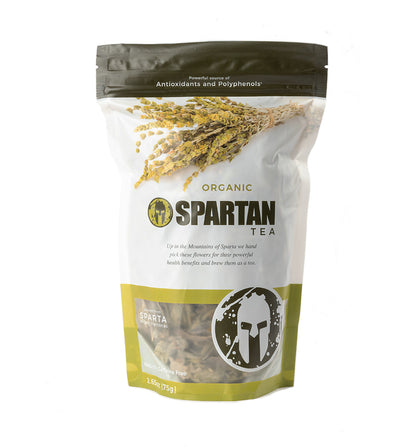5 Reasons Why Athletes Need Flavonoids in Their Diets

No matter how well trained you are, most athletes know that you'd still collapse on the race course without protein, healthy fats, and carbs. But there’s another component you’d be smart to consider when fueling your performance: flavonoids. These powerful antioxidants, found in plant-based foods, may help you race better, prevent injury, and even detox post-workout. What’s more, flavonoids are plentiful in some of your favorite foods: fresh berries, seasonal roasted veggies, and even red wine. (A glass might help both your mind and body unwind and reboot after a workout.)
Here’s what the effects of flavonoids can do for you.
What the Effects of Flavonoids Can Do for You
1. Flavonoids can energize your muscles throughout training.
To get through a hardcore training session, your muscles require extra oxygen. Your muscle cells are also more susceptible to damage and oxidative stress (an imbalance of antioxidants and potentially harmful particles called free radicals).
Related: How Free Radicals Screw With Your Fitness Goals
“A diet that's rich in antioxidants is necessary to protect cells and disarm this free radical damage,” Laura Burak, MS, RD, CDN, says.
2. They increase blood circulation to muscles, aiding performance.
Certain antioxidants help your muscles pull through during training or a race by sending blood flow to the muscles.
“Flavonoids are associated with increased production of nitric oxide, a known vasodilator that improves exercise performance,” Jim White, RDN, ACSM EX-P, says.
Nitric oxide can help your body handle more intense exercise for longer periods of time because it delivers energy-producing oxygen to the muscles, studies have shown.
3. Flavonoids can reduce muscle fatigue and injury.
“Free radical production from exercise contributes to fatigue in muscles, especially as duration and intensity increase and in high heat or high altitude environments,” Hillary Pride, RDN, LD, NASM-CPT, says.
The anti-inflammatory effects of flavonoids (and all antioxidants) help fight free radical damage, preventing injury.
4. They may fight heart disease and cancer.
“Studies show that individuals who consume at least 500 mg of flavonoids daily have the lowest risk of cancer and heart-disease related death,” White says.
Related: Eat THIS Food Every Day to Avoid the World's No. 1 Killer
Obviously, heart health is integral for athletes, and since flavonoids have been proven to help lower blood pressure, they can keep cardiovascular health in check. Antioxidants and flavonoids in particular, like green, leafy vegetables, tea, and even red wine have also been studied and proven to likely reduce cancer risk.
5. Flavonoids can help your body naturally detox post-workout.
These powerhouses can help almost all of the systems in your body stay on track, but they particularly help with detoxing.
“Foods that are rich in antioxidants — especially high-fiber and cruciferous produce — can support the body’s natural detoxification processes,” Pride says.
How to Get More Flavonoids in Your Diet
The foods below are all excellent sources of flavonoids, so aim to add them into at least two meals or snacks per day.
- Red and purple grapes and red wine
- Red, blue, and purple berries
- Teas
- Apples
- Citrus fruits
- Cocoa
- Onions and celery
- Green vegetables like kale and broccoli
- Hot peppers
- Herbs like thyme and parsley
- Soy and other legumes
“Think of adding a cup of blueberries to your morning yogurt with a mug of green tea, a big salad of leafy greens to your lunch, an apple and almond butter as an afternoon snack, and double roasted veggies such as asparagus with dinner every night,” Burak says.
Related: The Pros and Cons of Your 5 Favorite Dark Leafy Greens
The more colorful your plate is, the more disease-fighting antioxidants you’re consuming. Have a glass of red wine and some dark chocolate (choose 70% cacao and higher for the most flavonoids) at the end of the night to top off.

